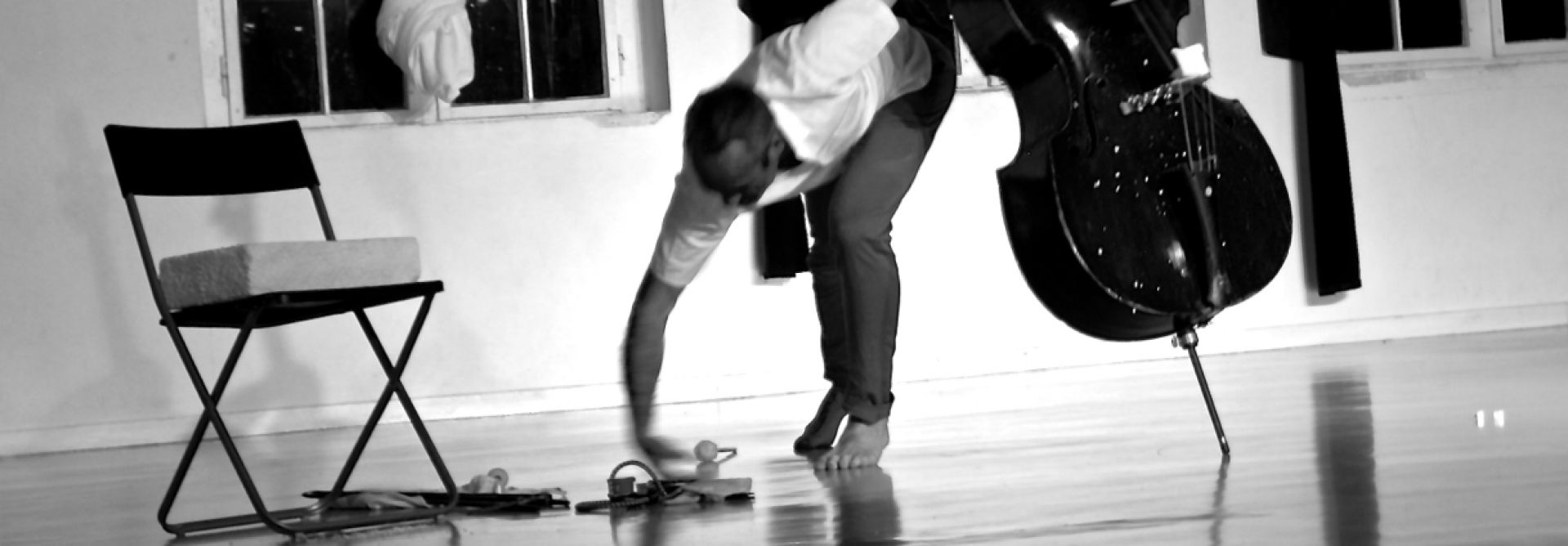On retrouve Frangenheim dans le WTTF Quartet qu’il compose avec Phil Wachsmann, Pat Thomas et Roger Turner. Il faudra attendre qu’une des machines du premier s’en empare pour qu’intéresse enfin le piano de Thomas – voilà un instrument de plus, le Thomasmann, que l’on doit à l’invention de Wachsmann. Quelques fois, les musiciens s’accordent le loisir d’y aller franchement ; le plus souvent, leurs gestes sont précieux, peaufinant des sons qui commandent d’autres gestes. Ici, l’association convainc ; ailleurs, elle pique.
-Guillaume Belhomme (Le Son du Grisli)
The acronym stands for (Phillip) Wachsmann, (Roger) Turner, (Pat) Thomas and (Alexander) Frangenheim. A previous release by this quartet — Gateway ’97, same label — came out after 16 years from the original performance. Berlin Kinesis took much less to see the light, having been recorded in 2014. In the liners, a somewhat cynical list of catastrophic historic events (peculiarly inaugurated by the Clinton/Lewinsky affair, whereas 2004’s Indian Ocean tsunami — approximately 230,000 victims, everybody — is forgotten) becomes a pretext to get proud about the project’s persistence as opposed to the progressive worsening of our civilization’s conditions. In all honesty, I find these words more disrespectful than encouraging.
At any rate, we’re here to analyze the music. And this music does indeed possess staying power despite its rather impenetrable architecture. WTTF plough difficult grounds across a profusion of improvisational synergies; throughout eight tracks they captivate, befuddle and exasperate, but never leave the listener indifferent. The ensemble’s level of acoustic pliability — the primary sources being violin, percussion, piano and double bass — is increased by the use of electronic processing. Consequently, the spikiness of many of the sounds finds its raison d’etre inside sequences of morphing cells, misshapen identities and rippling harmonics. A few quiet segments are also featured, but even in those instances a measure of subdued activity can be detected in the remote background. Individual constituents are always visible, sometimes waving their hands to be noticed amidst the extreme impulsiveness of the whole. Still, beyond the borders of timbral distinction what’s really worth noting is the collective management of the unforeseen, resulting in bazillions of dynamic mutations — from minutiae edginess to massive clangor — not weakened by the viruses of vulgarity.
-Massimo Ricci (The Squid’s Ear)
